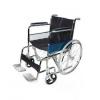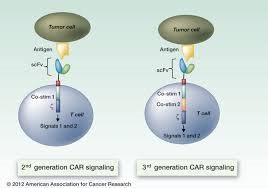
Breaking News
 Widow of killed fire chief not satisfied with Secret Service suspensions...
Widow of killed fire chief not satisfied with Secret Service suspensions...
 Gunman leaves multiple injured at church after shooting cop at Kentucky's Blue Grass Airport
Gunman leaves multiple injured at church after shooting cop at Kentucky's Blue Grass Airport
 One year later: White House highlight Trump's legacy on anniversary of assassination attempt
One year later: White House highlight Trump's legacy on anniversary of assassination attempt
 Arizona homeowner fined by petty HOA for act of kindness during extreme heat
Arizona homeowner fined by petty HOA for act of kindness during extreme heat
Top Tech News
Magic mushrooms may hold the secret to longevity: Psilocybin extends lifespan by 57%...
 Unitree G1 vs Boston Dynamics Atlas vs Optimus Gen 2 Robot– Who Wins?
Unitree G1 vs Boston Dynamics Atlas vs Optimus Gen 2 Robot– Who Wins?
 LFP Battery Fire Safety: What You NEED to Know
LFP Battery Fire Safety: What You NEED to Know
 Final Summer Solar Panel Test: Bifacial Optimization. Save Money w/ These Results!
Final Summer Solar Panel Test: Bifacial Optimization. Save Money w/ These Results!
 MEDICAL MIRACLE IN JAPAN: Paralyzed Man Stands Again After Revolutionary Stem Cell Treatment!
MEDICAL MIRACLE IN JAPAN: Paralyzed Man Stands Again After Revolutionary Stem Cell Treatment!
 Insulator Becomes Conducting Semiconductor And Could Make Superelastic Silicone Solar Panels
Insulator Becomes Conducting Semiconductor And Could Make Superelastic Silicone Solar Panels
 Slate Truck's Under $20,000 Price Tag Just Became A Political Casualty
Slate Truck's Under $20,000 Price Tag Just Became A Political Casualty
 Wisdom Teeth Contain Unique Stem Cell That Can Form Cartilage, Neurons, and Heart Tissue
Wisdom Teeth Contain Unique Stem Cell That Can Form Cartilage, Neurons, and Heart Tissue
 Hay fever breakthrough: 'Molecular shield' blocks allergy trigger at the site
Hay fever breakthrough: 'Molecular shield' blocks allergy trigger at the site
Medical first,children had cancer cured with genetically engineered T-cells from another person

Experiments, which took place at London's Great Ormond Street Hospital, raise the possibility of off-the-shelf cellular therapy using inexpensive supplies of universal cells that could be dripped into patients' veins on a moment's notice.
The ready-made approach could pose a challenge to companies including Juno Therapeutics and Novartis, each of which has spent tens of millions of dollars pioneering treatments that require collecting a patient's own blood cells, engineering them, and then re-infusing them.
Both methods rely on engineering T cells—the hungry predator cells of the immune system—so they attack leukemic cells.
The British infants, ages 11 and 16 months, each had leukemia and had undergone previous treatments that failed, according to a description of their cases published Wednesday in Science Translational Medicine. Waseem Qasim, a physician and gene-therapy expert who led the tests, reported that both children remain in remission.

 AI Getting Better at Medical Diagnosis
AI Getting Better at Medical Diagnosis

